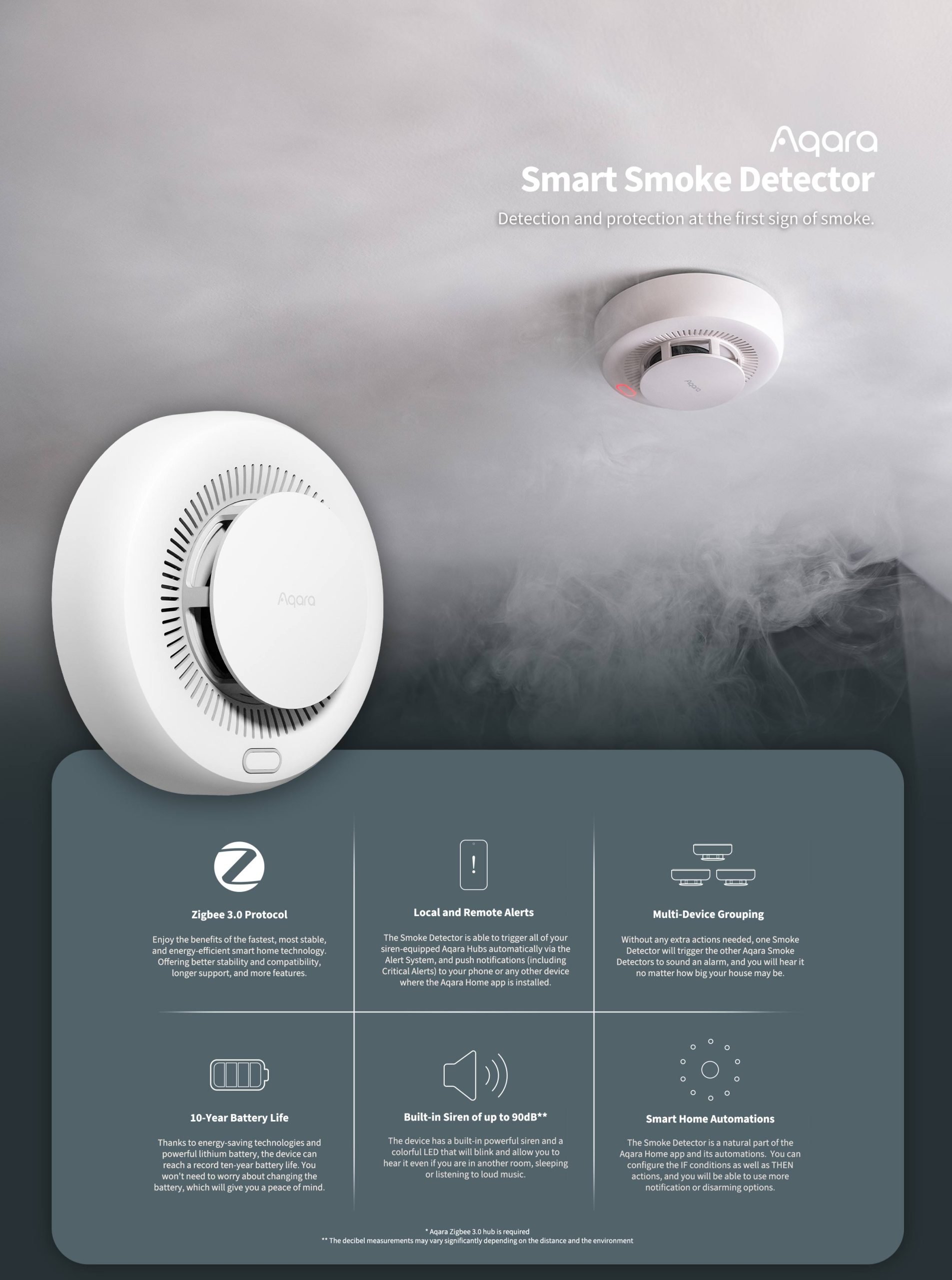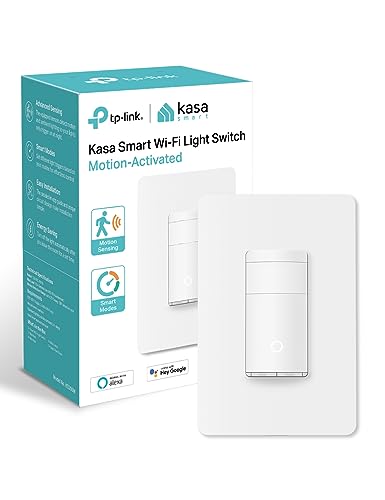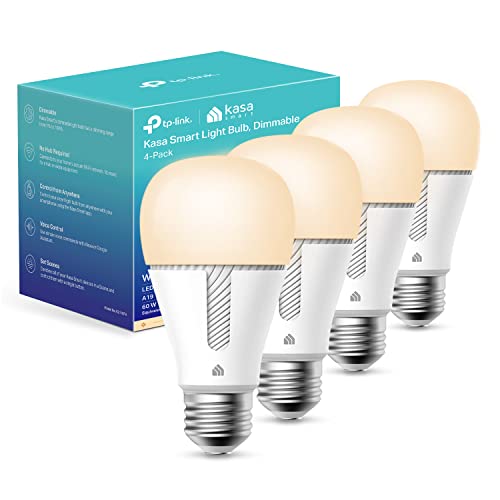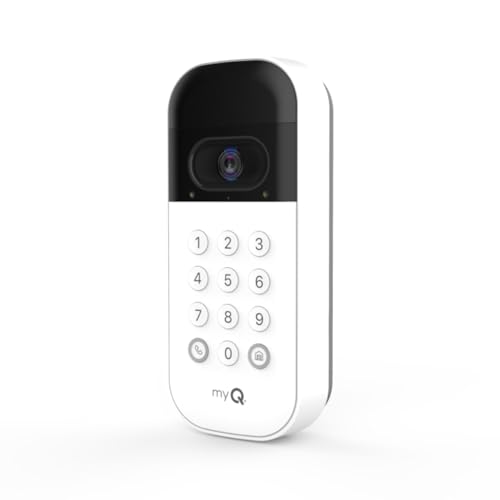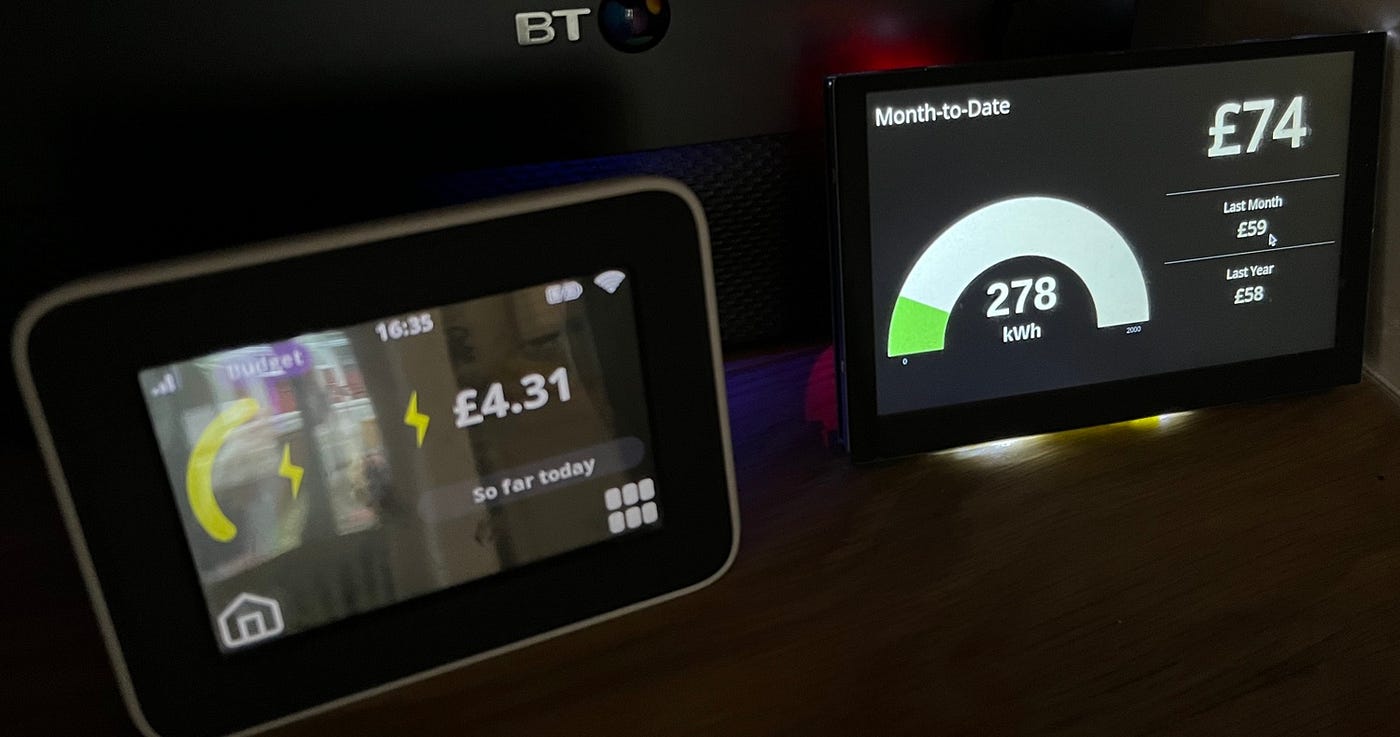Imagine this: you’re fast asleep, but your home is quietly protecting you. A smart smoke detector doesn’t just beep loudly—it sends alerts straight to your phone, giving you precious seconds to act.
If you care about your family’s safety and want to stay ahead of danger, integrating a smart smoke detector into your home is a game-changer. Ready to discover how this small device can make a big difference in your life?
Keep reading—your peace of mind depends on it.

Credit: www.x-sense.com
Benefits Of Smart Smoke Detectors
Smart smoke detectors offer more than just basic fire alarms. They provide advanced features that improve home safety.
These devices connect with your smartphone and other smart home systems. This connection helps you respond faster to fire hazards.
Enhanced Fire Detection
Smart smoke detectors use advanced sensors to detect smoke and fire quickly. They can identify different types of smoke for better accuracy.
These detectors reduce false alarms by checking air quality and environmental factors. This helps avoid unnecessary panic and interruptions.
Real-time Alerts
Smart smoke detectors send instant alerts to your phone or tablet. You get notified even if you are not at home.
These real-time alerts let you act quickly. You can call emergency services or check the situation remotely.
Integration With Other Devices
Smart smoke detectors connect with other smart devices in your home. They can trigger alarms, lights, or ventilation systems automatically.
This integration helps create a safer environment. For example, lights can turn on to guide you outside during a fire.

Credit: www.x-sense.com
Key Features To Look For
Smart smoke detectors help keep your home safe by alerting you to smoke and fire. Choosing the right features is important to get the best protection.
Look for features that make the detector easy to use and reliable. These features help you stay informed and keep the device working well.
Voice And Mobile Notifications
Smart smoke detectors can send alerts to your phone or speak warnings aloud. This lets you know about danger even when you are away.
Mobile notifications give instant alerts. Voice alerts can tell you the type and location of the smoke or fire.
- Receive alerts on smartphones or tablets
- Voice warnings announce smoke or fire
- Alerts can reach multiple users
- Helps you act quickly in emergencies
Self-testing And Maintenance
Good smoke detectors test themselves regularly to make sure they work right. This reduces the chance of failure.
Maintenance alerts tell you when to clean or replace parts. This keeps the detector reliable and safe.
- Automatic self-testing every day or week
- Alerts for sensor or system issues
- Reminders for cleaning and battery checks
- Easy maintenance extends device life
Battery Life And Power Options
Look for detectors with long battery life to avoid frequent changes. Some models use rechargeable or hardwired power.
Power options affect reliability and convenience. Backup batteries help keep the detector working during power outages.
- Long-lasting batteries reduce replacements
- Hardwired models connect to home power
- Backup battery support during outages
- Easy battery replacement design
Connecting To Smart Home Systems
Smart smoke detectors help protect homes by linking to smart systems. They send alerts and work with other devices.
Connecting them to smart home setups makes safety easier to manage. You can control and monitor detectors remotely.
Compatibility With Popular Platforms
Smart smoke detectors often support major platforms like Alexa, Google Home, and Apple HomeKit. This lets you add them to your existing smart devices.
Check if the detector works with your platform before buying. Compatibility ensures smooth setup and control.
- Amazon Alexa allows voice alerts and status checks
- Google Home offers app control and notifications
- Apple HomeKit integrates with the Home app for easy use
Using Hubs And Bridges
Some smoke detectors need hubs or bridges to connect with smart homes. These devices link your detector to the internet and other gadgets.
Hubs manage signals from many devices. Bridges connect detectors using special wireless protocols like Zigbee or Z-Wave.
- Zigbee bridges help connect multiple detectors
- Z-Wave hubs support wide device ranges
- Wi-Fi detectors may not need extra hardware
Setting Up Automation Rules
Automation rules let your smoke detector trigger other devices. For example, lights can flash when smoke is detected.
You can create rules using your smart home app. These rules improve safety by alerting you in different ways.
- Turn on all smart lights if smoke is detected
- Send alerts to your phone immediately
- Pause HVAC systems to stop smoke spread
Installation Tips And Best Practices
Smart smoke detectors help keep your home safe. Proper installation is key for best performance.
Follow these tips to install your device correctly and ensure it works well every day.
Optimal Placement For Coverage
Place smoke detectors where smoke can reach quickly. Install one in each bedroom and hallway.
Avoid placing detectors near windows, fans, or kitchens to reduce false alarms.
- Install detectors on the ceiling or high on walls
- Keep detectors at least 10 feet from cooking appliances
- Place detectors in every bedroom and near sleeping areas
- Cover all floors, including basements
Wiring Vs. Wireless Options
Wired detectors connect to your home’s power. They need professional installation.
Wireless detectors are easier to install and can work with smart home systems.
- Wired detectors offer constant power but can be complex to install
- Wireless detectors run on batteries and are simple to place
- Wireless models often connect to apps for alerts on your phone
- Choose based on your home setup and comfort with wiring
Regular Testing And Updates
Test your smoke detectors once a month. This keeps them working properly.
Keep the device firmware updated to fix bugs and improve safety features.
- Press the test button to check the alarm sound
- Replace batteries every 6-12 months or when low
- Update the device software through its app regularly
- Clean detectors to remove dust that can block sensors
Common Challenges And Solutions
Smart smoke detectors offer many benefits but also bring some challenges. Understanding these helps in better use and safety.
This article explains common problems with smart smoke detectors and how to solve them.
Connectivity Issues
Smart smoke detectors rely on Wi-Fi or other networks. Sometimes, connection drops or is weak.
Weak signals can cause delayed alerts or no alerts at all. This is a safety risk.
- Place the detector near your router for better signal.
- Use Wi-Fi extenders in large homes.
- Check for firmware updates regularly.
- Restart your router if connection fails.
False Alarms Reduction
False alarms happen when the detector senses non-dangerous smoke or dust. They cause stress and reduce trust.
Reducing false alarms keeps the system reliable and avoids unnecessary panic.
- Install detectors away from kitchens and bathrooms.
- Clean detectors regularly to avoid dust buildup.
- Choose detectors with advanced sensors that distinguish smoke types.
- Adjust sensitivity settings if possible.
Privacy And Security Concerns
Smart detectors connect to the internet, which can expose personal data if not secure.
Protecting your privacy and device security is important to avoid hacking or data leaks.
- Use strong, unique passwords for your devices.
- Enable two-factor authentication if available.
- Keep device software updated.
- Connect devices only to secure home networks.
Future Trends In Smoke Detector Technology
Smoke detectors are essential for home and workplace safety. New technology is making these devices smarter and more reliable.
Future trends focus on improving detection, communication, and response to fire hazards using advanced tools.
Ai And Machine Learning Integration
AI helps smoke detectors learn from different fire situations. This makes alarms more accurate and less likely to give false alerts.
Machine learning can analyze data to spot patterns and improve detection over time. Devices get smarter with use.
- Detects real fires faster
- Reduces false alarms
- Adapts to changing environments
Multi-hazard Detection
Future smoke detectors will sense more than just smoke. They can detect gas leaks, carbon monoxide, and heat changes.
This helps protect people from several dangers using one device. It also makes homes safer overall.
- Smoke and fire detection
- Carbon monoxide alerts
- Gas leak warnings
- Heat and temperature monitoring
Improved Interoperability
New smoke detectors will connect easily with other smart home devices. This allows quick sharing of alerts and data.
Devices will work together to help users respond faster to emergencies. This improves safety and convenience.
- Works with alarms, cameras, and lights
- Sends notifications to phones
- Supports smart home systems
- Enables automatic emergency calls

Credit: bulphome.com
Frequently Asked Questions
What Is Smart Smoke Detector Integration?
Smart smoke detector integration links smoke alarms with smart home systems. It enhances safety by sending alerts to your phone. This allows remote monitoring and faster emergency responses.
How Does Smart Smoke Detector Integration Work?
It connects smoke detectors to Wi-Fi or smart hubs. The system detects smoke or fire and sends notifications instantly. Integration can also trigger other smart devices like lights or alarms.
What Are The Benefits Of Smart Smoke Detector Integration?
Benefits include real-time alerts, remote monitoring, and automated safety responses. It improves home security and provides peace of mind when away. Integration also supports faster emergency reactions.
Can Smart Smoke Detectors Work With Voice Assistants?
Yes, many smart smoke detectors integrate with Alexa, Google Assistant, and Siri. This allows voice alerts and control through smart speakers. It adds convenience and immediate awareness during emergencies.
Conclusion
Smart smoke detector integration offers peace of mind and safety. Home security becomes more efficient and reliable. These devices connect effortlessly with smart home systems. Alerts notify you immediately, enhancing response time. This integration helps prevent fire-related incidents. A smart smoke detector is a wise investment for safety.
It protects your family and property with modern technology. Simple setup and easy operation make it user-friendly. Stay informed and secure with advanced features. Embrace this technology for a safer living environment. Smart smoke detectors are the future of home safety.
17 min read

